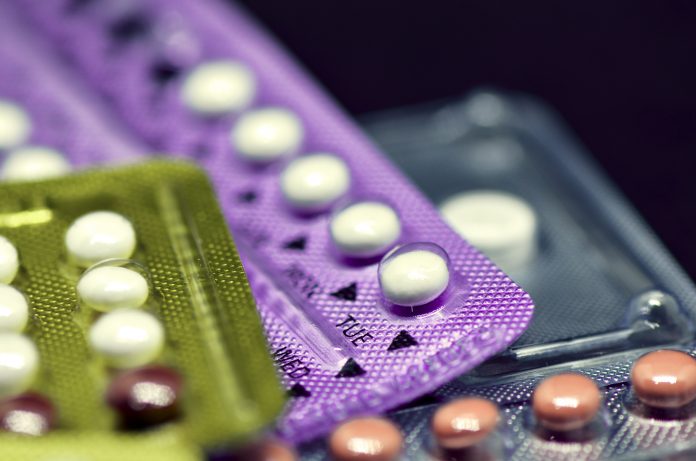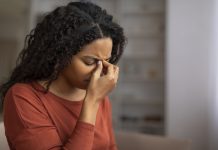Dr Deborah Lee, Dr Fox Online Pharmacy, discusses how the COVID-19 pandemic can affect the use of the pill, the contraceptive patch and the vaginal ring
Are you aware that the COVID-19 pandemic could affect your use of contraception? COVID-19 infection is now known to increase the risk of thrombosis (blood clots). This affects women’s usage of contraception because estrogen-containing methods of contraception also slightly increase the risk of thrombosis. However, there is no need to panic. Most women can safely continue their pill, patch, or ring. But read on below to find out when you might need to take action.
The Faculty of Sexual and Reproductive Health (FSRH) has issued guidance on the use of combined hormonal contraception (CHC) during the COVID-19 pandemic (18th December 2020). CHC means all types of contraception which contain the hormone estrogen, so this includes the combined pill, the patch (Evra) and the vaginal ring (NuvaRing).
Please do not stop using your current contraception. Continue as normal. The combined pill remains, a safe, reliable method of contraception for the vast majority of women. The risk of thrombosis in pregnancy is far higher than the risk of thrombosis on the pill. However, please read the Q and A’s below –
Take note that when referring to ‘the pill’ – this means the combined pill, as this differs from the progesterone-only (POP), or mini pill. The POP can be safely continued for everyone, even if you become infected with COVID-19.
Can I still take my pill, or use my patch or vaginal ring?
Yes, providing you are well, and not infected with COVID-19, you should continue your pill/patch, or ring, as usual.
If I have a positive COVID-19 test, should I stop my pill, patch, or ring?
The advice about what to do with your pill, patch or ring is linked to the severity of the COVID infection.
Asymptomatic – If you have a positive COVID test but have no symptoms, and continue to be physically active, you can continue your pill, patch, or ring as normal.
You may choose to swap to a non-estrogen containing method of contraception if you prefer, but it does take 4-6 weeks for the small increased risk of thrombosis associated with taking the pill, to reduce to baseline, after stopping. By the time you’ve stopped your pill, you are likely to have cleared your COVID infection.
COVID symptoms but staying at home – If you have a positive COVID-19 test, and have symptoms, but remain at home, you may want to consider changing your form of contraception. This is because there is always a small increased risk of thrombosis (a blood clot) when taking an estrogen-containing method such as the combined, pill, patch, or ring. COVID-19 is also known to increase the risk of thrombosis. There are currently no research studies to refer to, on how using estrogen contraception and having COVID-19 infection at the same time, affects the thrombosis risk.
Do not stop using your pill, patch, or ring suddenly as this could increase your risk of an unplanned pregnancy. The increased risk of becoming pregnant exists if, you have had sex without a condom –
- In the first 7 days of a new pill pack after having had a 7-day, pill-free interval, or
- When using the first new patch, after a 7-day, patch-free interval, or
- In the first 7 days after inserting a new vaginal ring, after a 7-day, ring-free interval.
In these situations, if you want to change your contraception you should consider taking emergency contraception before you start on your new method. Please continue to use your pill, patch, or ring, but take advice on how to do this as this can be complicated, from your GP, or local Sexual Health Clinic.
The progesterone-only pill (POP) is a suitable alternative method of contraception. POP – as its name suggests – does not contain any estrogen. There is no evidence that the progesterone-only pill increases the risk of thrombosis.
If you take the desogestrel POP (Cerazette/Cerelle) correctly, that is – every day, at the same time every day, with no 7-day break – it offers a similar degree of contraceptive protection to that of the combined pill, patch, and ring. It’s easy to get hold of the POP and simple to get started.
Hospitalisation with COVID – If you are unwell enough with COVID-19 to need admission to hospital, you should stop the combined pill, patch, or ring immediately, but take note of the advice above if you are in the first week of a new pill pack, new patch, or ring – if so, you will need emergency contraception. Again, it’s important to take advice on what to do and how to do this to make sure you don’t end up with an unplanned pregnancy. Ideally swap to another method such as the POP, itemized above.
How soon can you restart the pill, patch, or ring after COVID-19?
Once you are fully recovered, and back to a full range of activity, the pill, patch, or ring, can be restarted. However, if you had a severe infection, it is not known how ‘long COVID’ can affect the body’s metabolic and physiologic processes. If you continue to have symptoms, it is probably wise to stick with a non-estrogen form of contraception until more is known.
How to obtain the pill, patch, or ring in the pandemic
You should be able to obtain 6-12 months supply of your pill, patch or ring, from your GP or local Sexual Health clinic without the need for a blood pressure check. In the current situation, the risk of pregnancy is greater than the relatively small risk of developing high blood pressure using these methods.
Many women are now choosing to purchase contraceptive pills from online pharmacies. They fill in a questionnaire online and receive their pills, discreetly packaged by express delivery.
Have you considered changing over to a Long-Acting Reversible (LARC) form of contraception – such as an intrauterine device (IUD) or intrauterine system (IUS), an implant or injectable? Contraception and sexual health clinics are open to insert and remove these devices. Once fitted, they last 3-5 years or more and require no input on your behalf. These are generally suitable even if you have never been pregnant and in young people. You will not need check-ups unless something is wrong for the lifetime of the device. A lot more convenient in a pandemic situation!
For more information
- Faculty of Sexual and Reproductive Health (FSRH) – Guidance on the use of combined hormonal contraception (CHC) during the COVID-19 pandemic (18th December 2020).











